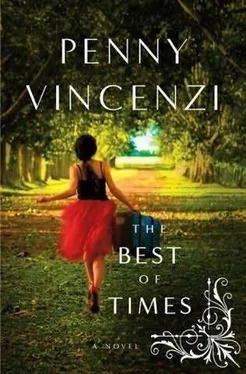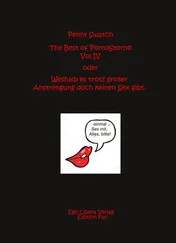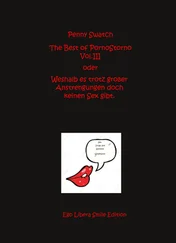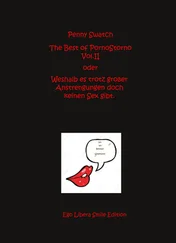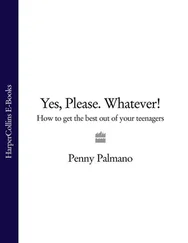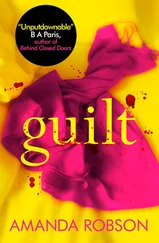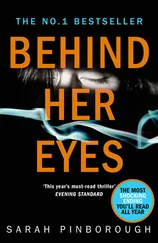Penny Vincenzi - The Best Of Times
Здесь есть возможность читать онлайн «Penny Vincenzi - The Best Of Times» весь текст электронной книги совершенно бесплатно (целиком полную версию без сокращений). В некоторых случаях можно слушать аудио, скачать через торрент в формате fb2 и присутствует краткое содержание. Жанр: Современная проза, на английском языке. Описание произведения, (предисловие) а так же отзывы посетителей доступны на портале библиотеки ЛибКат.
- Название:The Best Of Times
- Автор:
- Жанр:
- Год:неизвестен
- ISBN:нет данных
- Рейтинг книги:3 / 5. Голосов: 1
-
Избранное:Добавить в избранное
- Отзывы:
-
Ваша оценка:
- 60
- 1
- 2
- 3
- 4
- 5
The Best Of Times: краткое содержание, описание и аннотация
Предлагаем к чтению аннотацию, описание, краткое содержание или предисловие (зависит от того, что написал сам автор книги «The Best Of Times»). Если вы не нашли необходимую информацию о книге — напишите в комментариях, мы постараемся отыскать её.
The Best Of Times — читать онлайн бесплатно полную книгу (весь текст) целиком
Ниже представлен текст книги, разбитый по страницам. Система сохранения места последней прочитанной страницы, позволяет с удобством читать онлайн бесплатно книгу «The Best Of Times», без необходимости каждый раз заново искать на чём Вы остановились. Поставьте закладку, и сможете в любой момент перейти на страницу, на которой закончили чтение.
Интервал:
Закладка:
“Thank you,” said the woman. The others looked at her and half smiled; Sarah’s mother said, her voice shaky with nerves and emotion, “I was going to ask the same thing. But I wondered if whoever found my daughter-I believe it was another doctor-would have agreed.”
“We shall come to that evidence a little later,” said Andrews, “and you will be free to speak to the gentleman in question-who was indeed a doctor-then.”
The police evidence describing the background of the victims, how they had come to be on the road that afternoon, followed: the always tragic accounts of lives ended too soon. They were rich in clichés: “a devoted and selfless mother,”
“a lively, popular, and clever daughter,” “a loving and generous grandfather.” He hated the clichés, but they seemed de rigueur; they were what people told the police and, in any case, undoubtedly comforted the families.
He called Dr. Alexander Pritchard, the A &E consultant at St. Marks, to describe what medical procedures, if any, were carried out on the victims. Pritchard, who, like the pathologist, had clearly given evidence at many inquests before this one, spoke straightforwardly and with equal and careful tact: no procedures were carried out, the victims were all dead on arrival, and neither basic nor intensive life-support techniques were indicated. He added that in his opinion also, the deaths would all have been instantaneous.
Nice man, Andrews thought: an old-fashioned doctor of the best kind.
The inquest machinery ground on.
A large sheaf of photographs of the crash, taken from every angle, with relevant vehicles and trajectories painstakingly marked, were handed out to everyone. A description of the crash was given by Inspector Greg Dixon; he said people were for the most part very calm and helpful and that he would like to pay tribute to the courage of a doctor on the scene, “Mr. Jonathan Gilliatt, who worked tirelessly among the injured for many hours, and cared for a woman who had gone into premature labour, reassuring her and monitoring her condition until the ambulance arrived. He also most courageously climbed up into the lorry to turn the ignition off.”
Andrews asked for the forensic evidence; it was complex and highly technical, as it always was. Clearly the cause of the whole thing had been the wheel nut shattering the lorry’s windscreen; there was also considerable detail about a car two behind the lorry, which had apparently had a blowout, and caused considerable further damage, and which had had a large rusty nail in one of its tyres that would certainly have contributed to, if not caused, the blowout.
Michael Andrews called Sergeant Freeman to present the police evidence. He liked and respected Freeman; he had heard evidence from him many times. He had a certain lack of humour, and he tended to be rather self-important, but was inordinately thorough, incredibly hardworking, and he presented his evidence with great clarity. It took almost half an hour; at the end of it, Andrews was already tired, and it was only eleven. The concentration required by these big cases was exhausting; it never ceased to surprise him. He called a break for fifteen minutes, and sank gratefully into the peace of his own room, a huge mug of strong, sweet coffee supplied by his staff. He worried sometimes that at the age of fifty he was getting a bit old for this game, and then reminded himself that he had found inquests tough at thirty.
Patrick Connell had obviously once been a big man, Andrews thought, watching him as he came to the witness stand; he was tall, but frail, and walked leaning on two sticks and with a heavy limp. He asked him if he would like to sit down to give his evidence; Connell said he would rather stand, but halfway through what was obviously a gruelling experience, he was forced to give in and sit.
“Now, Mr. Connell, tell us about your recollections, as far as you can remember. We have heard you suffered memory loss, but anything you can tell us will be important.”
The evidence was faltering, faulty indeed; Connell had no real memory of the aftermath of the crash before he reached the hospital, and indeed very little of the next few days; memory had begun to return, but only in fragments. “It was a very disturbing time, sir, as you can imagine, I’m sure.”
“Indeed. Now… you weren’t feeling sleepy beforehand? It says in your statement, if I might remind you again, that you had been to see your doctor about this tendency of yours to feel sleepy on the road. Remember you are under oath.”
A hesitation; he could feel the lawyers stiffen.
“I had been, sir, yes. About half an hour earlier. But I’d stopped for a coffee, and I was eating sweets, jelly babies-they’re my life-savers, odd though it may sound to you, sir-and I was talking to my passenger immediately before the crash; I do remember that very clearly…”
He had gained confidence now; he gave a clearly honest description of blame-free driving, within the speed limit, of the other vehicles, of the E-Type ahead of him, “just pulling ahead… He was driving very nicely, as a matter of fact.”
“I’m pleased to hear it… and may I say how pleased I am also that you have made such a good recovery, Mr. Connell, from your injuries. You may step down.”
“Thank you, sir.”
Andrews asked for Connell’s passenger next: he looked at her as she took the stand, tiny, pretty little thing, clearly absolutely terrified, and asked her very gently to take the oath. Her hand shook as she held the card; he wondered how good a witness she would be.
But she was very good: calm and clear describing how one moment everything had seemed perfectly fine, nobody speeding, nobody cutting across anybody, and then how the windscreen had so suddenly shattered. “It was terrifying. Like being in a thick fog. And then somehow, we stopped and we were in the middle of all this… this chaos.”
“How long would you say it was before you felt the lorry veer over across the lanes of the motorway?”
“Oh… it all happened so slowly. It seemed like hours; I suppose it couldn’t have been more than… what, ten seconds. And then quite quickly there was this terrible, awful noise and horns going and brakes screaming and then we… we stopped.”
“Yes. I don’t think we need to go over the next few minutes; your statement was very clear, and it must have been very traumatic for you.”
He felt bound, driven by personal curiosity as much as professional, to ask her why she left the scene of the crash.
“I don’t know,” she said simply. “I wish I did, and I’m terribly ashamed of it. But I can’t explain it; I really can’t. I suppose I panicked. I remember thinking that if I got away, left the accident, it would be all right-no one would know I’d been there. I could just… just forget about it. It was so horrible, all the injured people especially-Patrick… Mr. Connell-and the wrecked cars, and people shouting and screaming. I felt I… well, I had to get away.”
“So you walked quite a long way, you say, and then hitched another lift and went home to Cardiff?”
“Yes, that’s right. And then I sort of managed to persuade myself that it hadn’t happened. Or rather that I hadn’t been there. That it was nothing to do with me. And the more time passed, the more impossible it got to admit. Until there were stories in the press, implying that Patrick-Mr. Connell-had gone to sleep.”
She started to cry; Michael Andrews waited patiently, then said, “Try not to feel too distressed, Miss Linley We all make mistakes and do things we can’t explain. I’m sure Mr. and Mrs. Connell are most grateful that you told your story when you did.”
Читать дальшеИнтервал:
Закладка:
Похожие книги на «The Best Of Times»
Представляем Вашему вниманию похожие книги на «The Best Of Times» списком для выбора. Мы отобрали схожую по названию и смыслу литературу в надежде предоставить читателям больше вариантов отыскать новые, интересные, ещё непрочитанные произведения.
Обсуждение, отзывы о книге «The Best Of Times» и просто собственные мнения читателей. Оставьте ваши комментарии, напишите, что Вы думаете о произведении, его смысле или главных героях. Укажите что конкретно понравилось, а что нет, и почему Вы так считаете.
